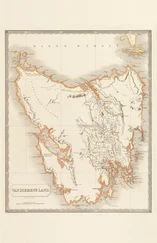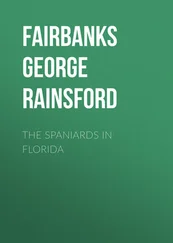Joshua Giddings - The Exiles of Florida
Здесь есть возможность читать онлайн «Joshua Giddings - The Exiles of Florida» — ознакомительный отрывок электронной книги совершенно бесплатно, а после прочтения отрывка купить полную версию. В некоторых случаях можно слушать аудио, скачать через торрент в формате fb2 и присутствует краткое содержание. Жанр: foreign_antique, foreign_prose, на английском языке. Описание произведения, (предисловие) а так же отзывы посетителей доступны на портале библиотеки ЛибКат.
- Название:The Exiles of Florida
- Автор:
- Жанр:
- Год:неизвестен
- ISBN:нет данных
- Рейтинг книги:5 / 5. Голосов: 1
-
Избранное:Добавить в избранное
- Отзывы:
-
Ваша оценка:
- 100
- 1
- 2
- 3
- 4
- 5
The Exiles of Florida: краткое содержание, описание и аннотация
Предлагаем к чтению аннотацию, описание, краткое содержание или предисловие (зависит от того, что написал сам автор книги «The Exiles of Florida»). Если вы не нашли необходимую информацию о книге — напишите в комментариях, мы постараемся отыскать её.
The Exiles of Florida — читать онлайн ознакомительный отрывок
Ниже представлен текст книги, разбитый по страницам. Система сохранения места последней прочитанной страницы, позволяет с удобством читать онлайн бесплатно книгу «The Exiles of Florida», без необходимости каждый раз заново искать на чём Вы остановились. Поставьте закладку, и сможете в любой момент перейти на страницу, на которой закончили чтение.
Интервал:
Закладка:
On the ninth of August, a motion was made in the Senate to refer the treaty to a select committee, which was rejected by a vote of ten nays to eight yeas; and on the twelfth, it was approved by a vote of fifteen yeas to four nays; but we have no report of any discussion upon the subject, nor do we know at this day the objections which dictated the votes given against its ratification. 13 13 Vide Annals of Congress, Vol. I, pages 1068-70-74.
CHAPTER II.
FURTHER EFFORTS TO RESTORE EXILES
Seminoles repudiate Treaty of New York – Attempts to induce Spanish authorities to deliver up the Exiles – Their refusal – Lower Creeks hostile to Treaty – McGillivray – His parentage and character – Georgia hostile to Treaty – Makes war upon Creeks – General Washington announces failure to maintain Peace – General Knox’s recommendation – Decision of United States Court – Exertions – Combination of various classes of Claimants – Washington finds his influence powerless – Appoints Judge Jay – Failure of claims on England – Condition and habits of Exiles – Effect on Slaves of Georgia – Treaty of Colerain – Commissioners of Georgia leave Council in disgust – Election of the elder Adams – His Administration – Election of Jefferson – His Administration.
The long pending difficulties between Georgia and the neighboring tribes of Indians were now (1791) believed to be permanently settled, and it was thought the new government would proceed in the discharge of its duties without further perplexity. But it was soon found impossible for the Creeks to comply with their stipulations. The Seminoles refused to recognize the treaty, insisting that they were not bound by any compact, arrangement or agreement, made by the United States and the Creeks, to which they were not a party, and of which they had no notice; that they were a separate, independent tribe; that this fact was well known to both Creeks and the United States; and that the attempt of those parties to declare what the Seminoles should do, or should not do, was insulting to their dignity, to their self-respect, and only worthy of their contempt. They therefore wholly discarded the treaty, and repudiated all its provisions. They resided in Florida, under the jurisdiction of Spanish laws, subject only to the crown of Spain. There they enjoyed that liberty so congenial to savages, as well as civilized men. The Creeks dared not attempt to bring back the Exiles by force, and the Government of the United States was unwilling to invade a Spanish colony for the purpose of recapturing those who had escaped from the bonds of oppression, and had become legally free .
In this state of affairs, an agent by the name of Seagrove was sent to Florida for the purpose of negotiating with the Spanish authorities for the return of the Exiles. He had been agent to the Creek Indians, and well understood their views in regard to the treaty. When he reached Florida, he found the authorities of that Province entirely opposed to the surrender of any subjects of the Spanish crown to slavery. The Exiles were regarded as holding the same rights which the white citizens held; and it was evident, that the representatives of the King of Spain encouraged both the Seminole Indians and Exiles, to refuse compliance with the treaty of New York. 14 14 Vide Correspondence on this subject between Seagrove and the War Department. American State Papers, Vol. V, pages 304-5, 320, 336, 387, and 392.
Nor was the Creek nation united upon this subject. The “lower Creeks,” or those who resided on the southern frontier of Georgia, were not zealous in their support of the treaty; and it was said that McGillivray, the principal chief of the Creeks, was himself becoming unfriendly to the United States, and rather disposed to unite with the Spanish authorities. This man exerted great influence with the Indians. He was the son of an Indian trader, a Scotchman, by a Creek woman, the daughter of a distinguished chief. He had received a good English education; but his father had joined the English during the Revolution, and he, having been offended by some leading men of Georgia, had taken up his residence with the Indians and become their principal chief, in whom they reposed implicit confidence.
Amid these difficulties, the people of Georgia manifested an equal hostility to the treaty, inasmuch as it surrendered a large territory to that State, which the authorities of Georgia pretended to have obtained by the treaty of Galphinton. The general feeling in that State was far from being satisfied with the action of the Federal Government. Seagrove, writing to the Secretary of War on this subject, declared, that “to such lengths have matters gone, that they (the Georgians) now consider the troops and servants of the United States who are placed among them, nearly as great enemies as they do the Indians.” 15 15 American State Papers, “Indian Affairs.” Vol. II, p. 306.
Under these circumstances, the Governor of Georgia was addressed, by order of the President; but he evidently participated in the popular feeling of his State. While the Spanish authorities and Seminoles, both Indians and Exiles, repudiated the treaty of New York, Governor Tellfair, of Georgia, declared that the people of his State “ would recognize no treaty in which her commissioners were not consulted .” Instead of observing its stipulations of peace, he proceeded to raise an army; invaded the Creek country, attacked one of their towns said to be friendly to Georgia, killed some of their people, took others prisoners, burned their dwellings, and destroyed their crops.
The Creeks declared their inability to return the Exiles, 16 16 Vide talk of principal Chief at Treaty of Colerain.
and, on the thirtieth of January, General Washington, in a Special Message to Congress, announced the failure of all efforts to maintain tranquillity between the people of Georgia and the Creek Indians. Such were the difficulties surrounding the subject of regaining the Exiles, that General Knox, Secretary of War, in a written communication addressed to the President, recommended that Congress should make an appropriation to their owners, from the public treasury, as the only practicable manner in which that matter could be settled. 17 17 Vide Annals of Congress of that date.
This communication was transmitted to Congress by the President, accompanied by a special message, recommending it to the consideration of that body; but the members appeared unwilling to adopt the policy thus suggested. They seem to have entertained doubts as to the propriety of appropriating the money of the people to pay for fugitive slaves. They respectfully laid the Message, and the recommendation of the Secretary of War, upon the table, and ordered them to be printed. 18 18 Vide papers accompanying the Treaty of Colerain. American State Papers, Vol. I, “Indian Affairs.”
The claimants of the Exiles were again encouraged and strengthened in their expectations by the excitement prevailing in the southern portion of the Union, arising from a decision of the Circuit Court of the United States, held at Richmond, Virginia. At the commencement of the war, the States prohibited the collection of debts due British subjects from citizens of the Colonies. These debts had remained unpaid for some sixteen years; and although the debtors entertained an expectation of paying them at some future period, many intended meeting those demands by the funds which they supposed would be awarded them as indemnity for slaves carried away in British vessels during the Revolution, and for those enlisted into the British army.
These laws, enacted at the commencement of the Revolution, were declared by the Court to have been superseded by the treaty of peace, in 1783; and the debtors in the several States thus became liable to the payment of those debts, while their demands of indemnity for slaves were pending, and the British Government had thus far refused to acknowledge their validity. These claimants became impatient of delay, and demanded that another treaty be formed with England, by which they could obtain indemnity for the loss of their slaves. These uniting with those who claimed a return of the Exiles in Florida, constituted an influential portion of the people of the Southern States, whose joint influence was exerted to involve the Government in the support of slavery.
Читать дальшеИнтервал:
Закладка:
Похожие книги на «The Exiles of Florida»
Представляем Вашему вниманию похожие книги на «The Exiles of Florida» списком для выбора. Мы отобрали схожую по названию и смыслу литературу в надежде предоставить читателям больше вариантов отыскать новые, интересные, ещё непрочитанные произведения.
Обсуждение, отзывы о книге «The Exiles of Florida» и просто собственные мнения читателей. Оставьте ваши комментарии, напишите, что Вы думаете о произведении, его смысле или главных героях. Укажите что конкретно понравилось, а что нет, и почему Вы так считаете.












